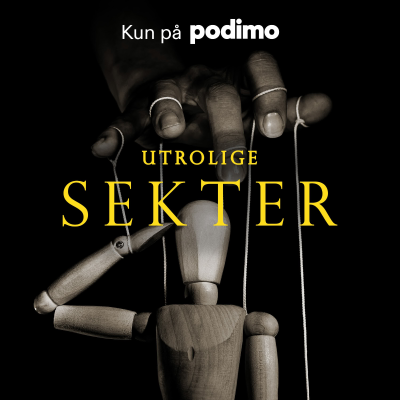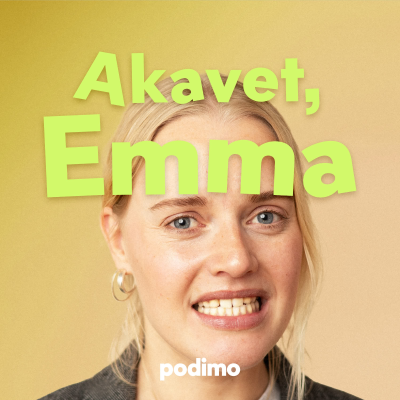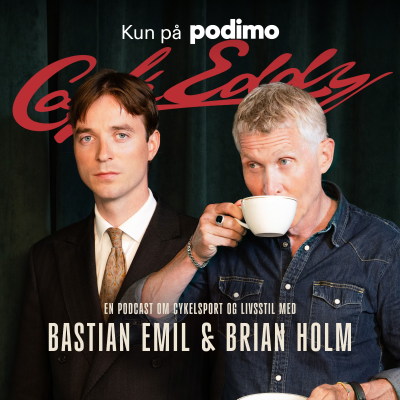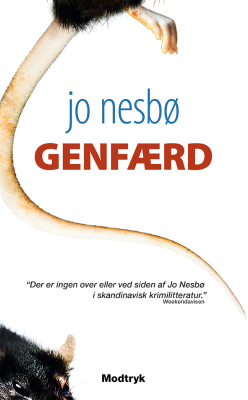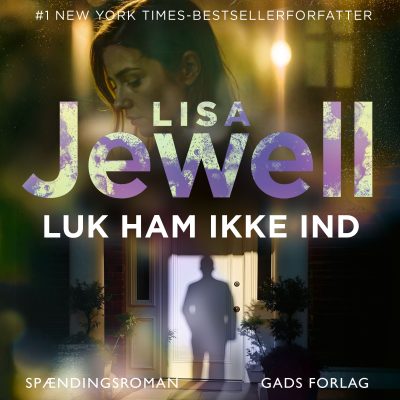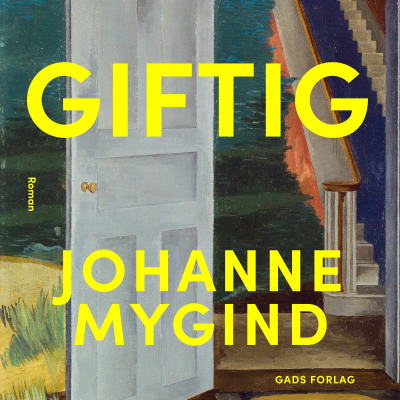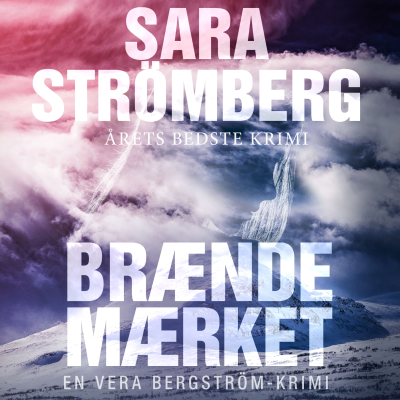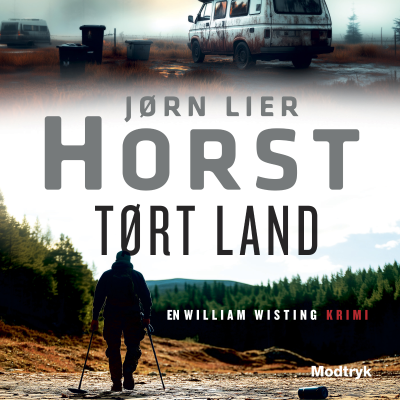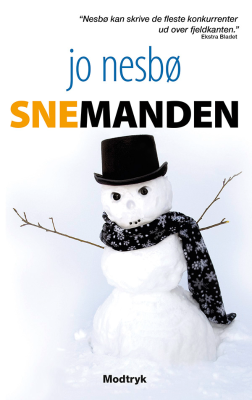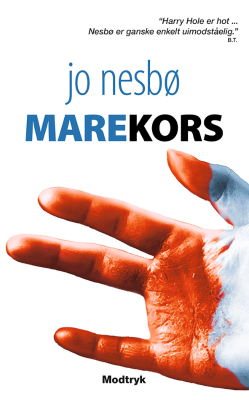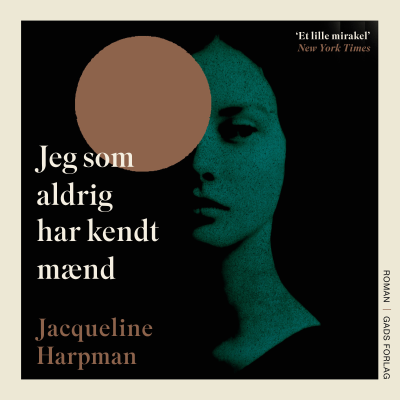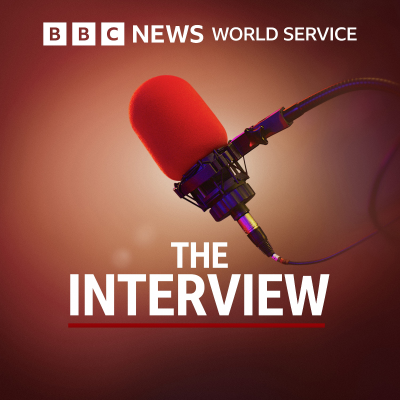
The Interview
engelsk
Begrænset tilbud
2 måneder kun 19 kr.
Derefter 99 kr. / månedOpsig når som helst.
- 20 lydbogstimer pr. måned
- Podcasts kun på Podimo
- Gratis podcasts
Læs mere The Interview
Conversations with people shaping our world, from all around the globe. Listen to The Interview for the best conversations from the BBC, the world's most trusted international news provider. We hear from titans of business, politics, finance, sport and culture. Global leaders, decision-makers and cultural icons. Politicians, activists and CEOs. Each interview is around 20-minutes, packed full of insight and analysis, covering some of the biggest issues of our time. How does it work? Well, at the BBC, our journalists interview amazing people every single day. And on The Interview, we bring them to you. It’s your one-stop-shop to the best conversations coming out of the BBC, with the people shaping our world, from all over the world. Get in touch with us on emailTheInterview@bbc.co.uk and use the hashtag #TheInterviewBBC on social media.
Alle episoder
1882 episoderGuillermo del Toro, director: I only make movies for art
“I have never made a movie I didn't believe was necessary for me or for someone in the world, whether to entertain or to connect at a spiritual level or something. It's been only done for the art.” John Wilson speaks to Oscar-winning Mexican director, screenwriter, and producer, Guillermo del Toro about his life and career. Born in Guadalajara in 1964, his life suddenly changed at the age of five after his father, then a motorcycle racer, won the lottery. While his parents travelled the world with the winnings, del Toro was raised at home by his Catholic great aunt, a deeply religious figure who exposed him to concepts including purgatory and sin. Fascinated and frightened in equal measure, it piqued his interest in the supernatural, leading him to seek out books and films on the genre. And when his father presented him with a video camera a few years later, the two interests combined and set the young del Toro on a path to becoming an Oscar winner renowned for making films that mix fantasy, horror, and Gothic romance, to create modern fairy tales. Thank you to the This Cultural Life team for their help in making this programme. The Interview brings you conversations with people shaping our world, from all over the world. The best interviews from the BBC, including episodes with education campaigner Malala Yousafzai, social psychologist Jonathan Haidt, and artificial intelligence pioneer Mustafa Suleyman. You can listen on the BBC World Service on Mondays, Wednesdays and Fridays at 0800 GMT. Or you can listen to The Interview as a podcast, out three times a week on BBC Sounds or wherever you get your podcasts. Presenter: John Wilson Producers: Ben Cooper and Edwina Pitman Editor: Damon Rose Get in touch with us on email TheInterview@bbc.co.uk and use the hashtag #TheInterviewBBC on social media. (Image: Guillermo del Toro. Credit: Tibrina Hobson/Getty Images for Santa Barbara International Film Festival)
Dr Nyaradzayi Gumbonzvanda, UN deputy director for women: Africa must prioritise water over war
“Africa is flowing with resources from oil, diamonds, critical minerals. But at times we find that in our cities, at the bus stations, there's no toilets with running water in a continent which is rich with possibilities. So it's how that intentionality, that political will, to put resources to what matters most.” Daniel Dadzie speaks to Dr Nyaradzayi Gumbonzvanda, UN Assistant Secretary-General and UN deputy director for women, about the need for Africa to focus on the priorities of its people, such as water and sanitation. The interview took place at the African Union summit in Addis Abbaba, Ethiopia, where the theme was: “Ensuring sustainable water availability and safe sanitation systems.” It’s part of Agenda 2063 - the organisation’s 50-year strategic framework. But Gumbonzvanda says these things can’t wait fifty years, and that they need to be a priority for African leaders now. In her role as deputy lead for UN Women, she is also increasingly concerned by the stories she’s been hearing from the women of Sudan, where the civil war continues to rage. She says that regional bodies and the UN are not doing enough to protect the war-torn country’s women and children. The Interview brings you conversations with people shaping our world, from all over the world. The best interviews from the BBC, including episodes with Taiwan’s cyber ambassador Audrey Tang, author Sir Salman Rushdie, and South African health minister Dr Aaron Motsoaledi. You can listen on the BBC World Service on Mondays, Wednesdays and Fridays at 0800 GMT. Or you can listen to The Interview as a podcast, out three times a week on BBC Sounds or wherever you get your podcasts. Presenter: Daniel Dadzie Producers: Albert Kirui, Brian Khisa, and Clare Williamson Editor: Damon Rose Get in touch with us on email TheInterview@bbc.co.uk and use the hashtag #TheInterviewBBC on social media. (Image: Dr Nyaradzayi Gumbonzvanda Credit: Roy Rochlin/Getty Images for The Ford Foundation)
Volodymyr Zelensky, President of Ukraine: We will not lose this war
“We stand and fight for survival. We are an independent state. We will definitely not lose this war” Jeremy Bowen, the BBC’s International Editor, speaks to the Ukrainian President Volodymyr Zelensky in an interview marking the fourth anniversary of the Ukraine war. Official figures put the number of Ukrainian soldiers killed at 55,000 since the full-scale Russian invasion began, but that is believed to be an underestimate, with many more missing. The number of Russian soldiers killed is believed to be much higher. The civilian death toll in Ukraine stands at more then 14,000. Repeated attempts at a peace deal have failed. In the face of ongoing Russian aggression, President Zelensky remains defiant. Russia has started the Third World War, he says, and must not be allowed to win. Thank you to Imogen Anderson and Jeremy Bowen for their help in making this programme. The Interview brings you conversations with people shaping our world, from all over the world. The best interviews from the BBC, including episodes with Germany’s Chancellor Friedrich Merz and Colombian President Gustavo Petro. You can listen on the BBC World Service on Mondays, Wednesdays and Fridays at 0800 GMT. Or you can listen to The Interview as a podcast, out three times a week on BBC Sounds or wherever you get your podcasts. Presenter: Jeremy Bowen Producers: Imogen Anderson and Lucy Sheppard Editors: Justine Lang and Damon Rose Get in touch with us on email TheInterview@bbc.co.uk and use the hashtag #TheInterviewBBC on social media. (Image: Volodymyr Zelensky Credit: Leon Neal/Getty Images)
Boris Johnson and Sir Tony Radakin: Ukrainians are heroes
Laura Kuenssberg speaks to former British Prime Minister, Boris Johnson, and former head of the British Armed Forces, Admiral Sir Tony Radakin, about the war in Ukraine. Johnson was in Downing Street four years ago, when the Russian invasion of Ukraine began. As one of the driving forces behind the West’s initial response, he has been critical of the slowness of allies in providing support to President Zelensky, which Johnson says has cost lives. The two men believe the conflict could have been prevented altogether if Western allies had paid more attention to Putin's increasing aggression and annexation of Crimea in 2014. The Interview brings you conversations with people shaping our world, from all over the world. The best interviews from the BBC, including episodes with the Mayor of Kyiv, Vitali Klitschko, Iranian author Azar Nafisi, and the President of Somalia, Hassan Sheikh Mohamud. You can listen on the BBC World Service on Mondays, Wednesdays and Fridays at 0800 GMT. Or you can listen to The Interview as a podcast, out three times a week on BBC Sounds or wherever you get your podcasts. Presenter: Laura Kuenssberg Producers: Paul Twinn and Ben Cooper Editors: Diana Martin and Damon Rose Get in touch with us on email TheInterview@bbc.co.uk and use the hashtag #TheInterviewBBC on social media. (Image: Boris Johnson and Sir Tony Radakin. Credit: Jeff Overs)
José Andrés, chef and humanitarian: Food is a human right
“Food is a human right that should be supported by everybody, no children should go to bed hungry, even less in a conflict." Caitriona Perry speaks to José Andrés world-renowned chef and humanitarian. Andrés was born in Spain and trained as a chef before moving to the United States, where he helped popularise Spanish cuisine and built a global restaurant empire. He later founded World Central Kitchen, an organisation that has transformed the way humanitarian aid responds to crisis, delivering meals in war zones, after natural disasters, and in communities where hunger is a daily reality. José Andrés reflects on food, power, and why feeding people is inseparable from dignity and justice. The Interview brings you conversations with people shaping our world, from all over the world. The best interviews from the BBC, including episodes with Hind Kabawat Syria's only woman minister, Antonio Guterres the UN Secretary General and the director Chloe Zhao.. You can listen on the BBC World Service on Mondays, Wednesdays and Fridays at 0800 GMT. Or you can listen to The Interview as a podcast, out three times a week on BBC Sounds or wherever you get your podcasts. Presenter: Caitriona Perry Producers: Chloe Ross, Farhana Haider Editor: Damon Rose Get in touch with us on email TheInterview@bbc.co.uk and use the hashtag #TheInterviewBBC on social media. (Image: José Andrés Credit: Pief Weyman/NBC via Getty Images)
Vælg dit abonnement
Begrænset tilbud
Premium
20 timers lydbøger
Podcasts kun på Podimo
Gratis podcasts
Opsig når som helst
2 måneder kun 19 kr.
Derefter 99 kr. / måned
Premium Plus
100 timers lydbøger
Podcasts kun på Podimo
Gratis podcasts
Opsig når som helst
Prøv gratis i 7 dage
Derefter 129 kr. / måned
2 måneder kun 19 kr. Derefter 99 kr. / måned. Opsig når som helst.
